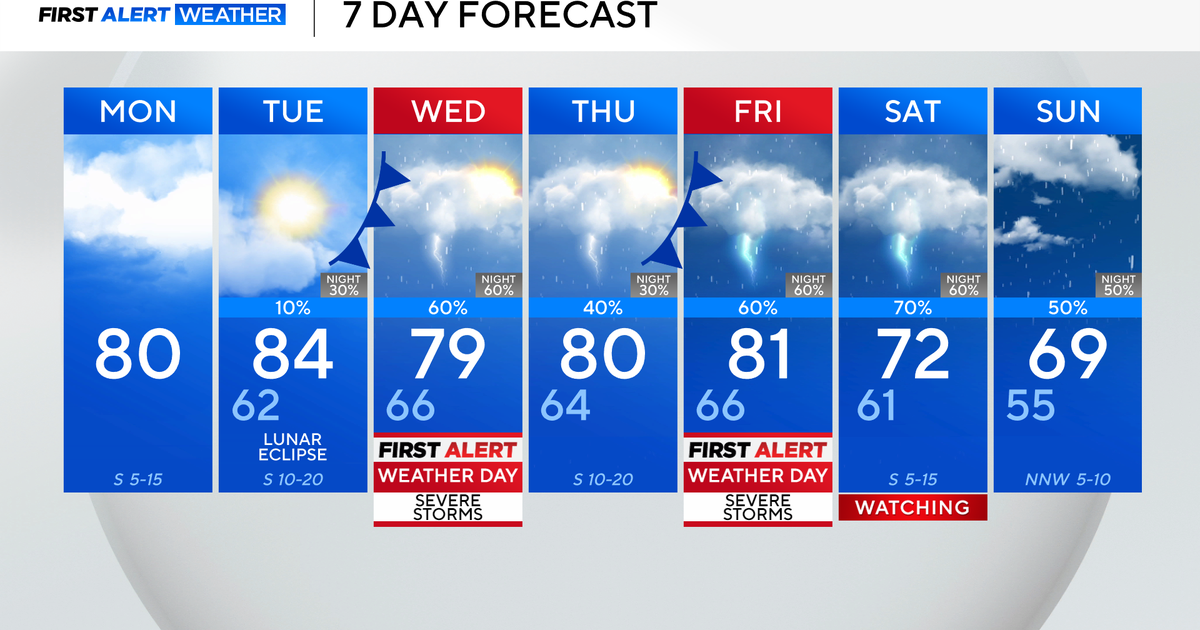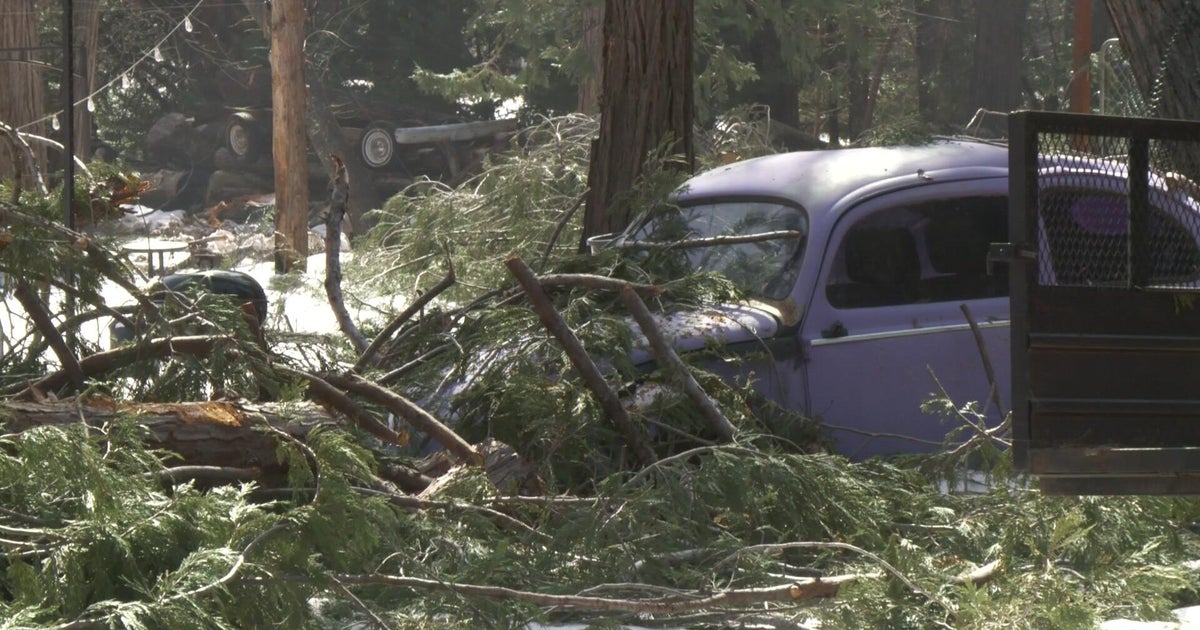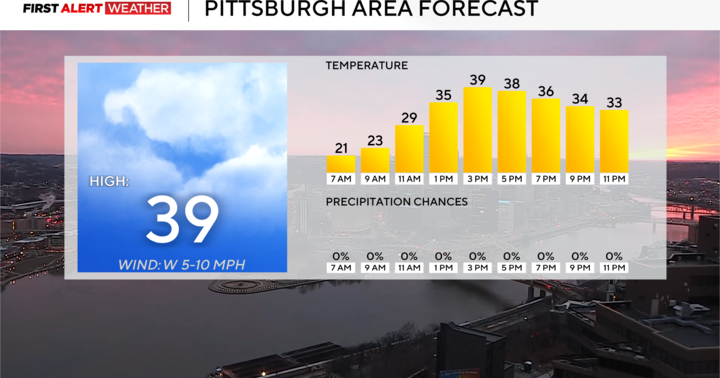Tri-State Taking Precautions Ahead Of Earl
NEW YORK (CBS 2/1010 WINS/WCBS 880) -- When a storm hits, you need to be ready so you don't put yourself, your family or your home in jeopardy.
Tri-State officials have also been gearing up for days so they are ready to respond to possible challenges and damage presented by Hurricane Earl.
Emergency personnel urged everyone to ready their own storm kits with battery operated flashlights and radios, 3 days worth of water and food, prescriptions, cash and important insurance documents.
EXTRAS: Hurricane and Tropical Storm Guide | Storm Tracker
LISTEN: 1010 WINS' Juliet Papa reports from Broad Channel
LISTEN: 1010 WINS' Carol D'Auria reports from Long Beach
LISTEN: 1010 WINS' Stan Brooks reports from Borough Hall in Brooklyn
LISTEN: WCBS 880′s Rich Lamb with preparations in Brooklyn
LISTEN: CBS News correspondent Jim Krasula in Kill Devil Hills, NC
LISTEN: 1010 WINS' Mona Rivera: Fire Island ferry terminal in Bay Shore
LISTEN: CBS News Weatherman Dave Price in Chesapeake, Virginia
LISTEN: WCBS 880′s Mike Xirinachs: Hamptons ready for Earl, holiday weekend
LISTEN: WCBS 880′s Sean Adams: Big waves at the Jersey Shore
They've battened down the hatches along the oceanfront on Long Island, with garages and basements now filled with items that could fly off in high winds.
"Everything gets taken off the decks so nothing can blow away, hit the windows, hit a neighbor's windows or anything," Quogue resident Ken Olsen said.
The surf churned close in on the beach Thursday, even during low tide. Earlier, parts of Dune Road were already flooding. Westhampton Dunes, the area breached and devastated in a 1938 hurricane and eventually rebuilt, is no longer protected by flood insurance.
Resident Antoniette Scarda, whose fragile property lies between the ocean and the bay, says her family wants to remain throughout Labor Day weekend.
"We're not worried. We have our supplies, we have our generator, extra fuel for the generator, candles, but we're going to ride out the storm," Scarda said.
The last thing Ken and Roberta Olsen did before turning in was to take the signal flags facing the open ocean -- and cast a nervous look at the brand new dunes they're hoping will protect their home.
"I'm very concerned, of course, because we had a lot of damage last year and it was quite frightening," Roberta Olsen said. "We had to evacuate the house. It's something to be concerned about."
The storm is so big that no one was in the mood to take chances Thursday. Long Island's commercial fishing fleet withdrew from harm's way during unusually strong tides, and some tourists cut short their East End vacations.
No evacuation is currently anticipated, but the people at Suffolk County's emergency operation center say that could change if the storm path does.
A few brave souls say they'll wait until the very last moment before taking any precautions.
"We're hoping that it won't hit with full intensity so we don't have to move stuff back and forth, but if we have to, we do the two-minute drill," Robert Halpern, of Quogue, said.
Officials in Suffolk County decided Thursday afternoon to close all of the county's ocean-based beaches.
"We are taking the action of closing our campgrounds this evening on the ocean front," Suffolk County Executive Steve Levy said. "Suffolk County beaches today were closed. The rip tide was really, really dangerous."
Officials in Suffolk County have also introduced a new alert system. Residents who sign up on the county Web site will get instant notification of any evacuation or emergency plans.
Red Cross Officials on the Island say 2,000 volunteers are ready to lend a hand at any of the 50 shelters, 25 in each county, that will be opened if needed.
As the waves crash along the shore in Long Beach Island, New Jersey, homes without protection are most at risk.
That's why Victor Brown and his wife have packed up some clothes in case they and their two children need to make a quick getaway.
"Got the car gassed up, got some cash on hand so we're ready to go," Brown told CBS 2's Sean Hennessey, "we are prepared to leave if they tell us to leave. We haven't heard anything about an evacuation or anything."
Nearby, deck furniture was been turned over as a precaution by a Brant Beach family whose home couldn't be much closer to what could be wild waves.
"Of course there's a concern. We don't really know how it's going to affect us...we're going to be here in our house...and we'll see how it goes," Mazie Colen said.
Downtown, signs are up warning residents and visitors of severe surf conditions. Just last November, a nor'easter had streets flooded and homes perilously close to eroding sands. Police and emergency officials here have seen what's possible on the front lines of the ocean.
"We're taking precautions. We'll have extra personnel on hand, all our four wheel vehicles are ready to go...so we just plan for the worst and hope for the best," Steve Melega of Long Beach Township's Emergency Management team said.
Dan Palumbo is also among those hoping for the best with a front row seat for Friday.
"If worse comes to worst, we will get out but I don't think we'll have to get out. I think we should be here enjoying this whole...I think it's going to be a beautiful show," Palumbo said.
But with beauty comes potential danger. Dunes in front of oceantfront homes can only do so much, especially when mother nature is ready to rage.
"It's definitely the last thing you want to hear on vacation but you know, you want to be safe," Brown said.
In New York City, officials were on alert but said they expected to see only side effects of the storm -- mostly rain and high winds, with possible soil erosion on the beaches and flooding along the oceanside coasts of Brooklyn and Queens.
Fire Commissioner Sal Cassano said New York's bravest are prepared. "We have a storm plan that we already have activated and a task force that is ready to go in case there are dewatering issues."
Emergency officials are in regular contact with nursing homes and hospitals in the seaside zones from Coney Island to the Rockaways. The city has also been working to clear out basins that typically flood, to allow faster relief under potentially heavy rains.







